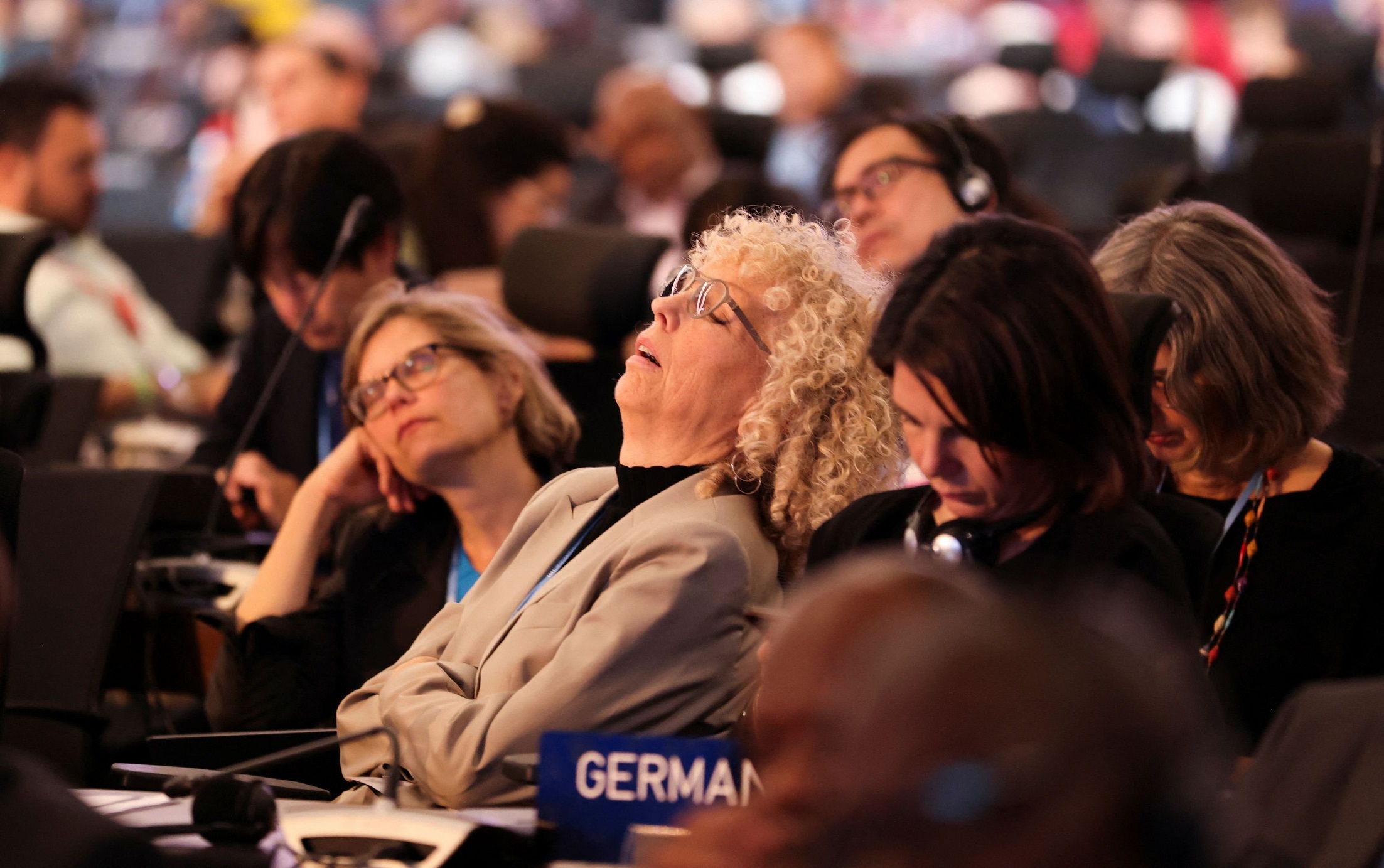
After tense negotiations that ran through the night, the Egyptian Cop27 presidency early yesterday released a draft text for an overall agreement — and simultaneously called a plenary session to gavel it through as the final, overarching agreement for the UN summit.
The session approved the text’s provision to set up a "loss and damage" fund to help developing countries bear the immediate costs of climate-fuelled events such as storms and floods.
But it kicked many of the most controversial decisions on the fund into next year, when a "transitional committee" will make recommendations for countries to then adopt at the Cop28 climate summit in November 2023.
Developing countries have been asking for help with "loss and damage" — financial assistance to rescue and rebuild stricken countries after climate-related disasters — for more than a decade.
But rich countries have until now refused, providing limited cash instead to help them cut greenhouse gas emissions and build defences against extreme weather.
"Spirits are high," said Jean Su, energy justice director at the Centre for Biological Diversity. "Climate-vulnerable nations and civil society are beaming at a big step forward on creating a loss and damage fund, more than a decade in the making."
Maisa Rojas, Chile’s environment minister, called the fund a "historic step".
A deal was still uncertain as the clock ticked on the extension of the Cop27 UN climate summit in Egypt, running well beyond delegates’ Friday deadline.
However, the EU, the US, the UK and other developed countries had all agreed in principle by mid-evening that a funding facility for loss and damage should be set up.
It was a day of high drama in Sharm el-Sheikh, and bitter conflict between rich and poor nations. Some of the world’s poorest countries denounced the rich world for delaying action and refusing financial assistance for afflicted countries for so long.
Rich countries sought to argue that rapidly growing economies such as China and oil producers such as Saudi Arabia and other petro-states should contribute to rather than receive from funds to repair climate "loss and damage".
They also want to ensure that the countries receiving cash from the fund are the most vulnerable, rather than those with big economies that are still classed as "developing" under the UN Framework Convention on Climate Change, signed in 1992.
The Egyptian hosts came in for strong criticism over their methods of brokering a deal, by showing drafts of the final text to selected countries individually, rather than allowing them to work together. One veteran delegate called it "un-transparent, unpredictable and chaotic".
There was also a rare moment of unity, when the US and China unexpectedly patched up their diplomatic row andrevived a joint partnership that will mean the world’s two biggest emitters, and biggest economies, co-operate on ways to cut greenhouse gas emissions.
The final marathon negotiating session continued long into the night. — Guardian News and Media












